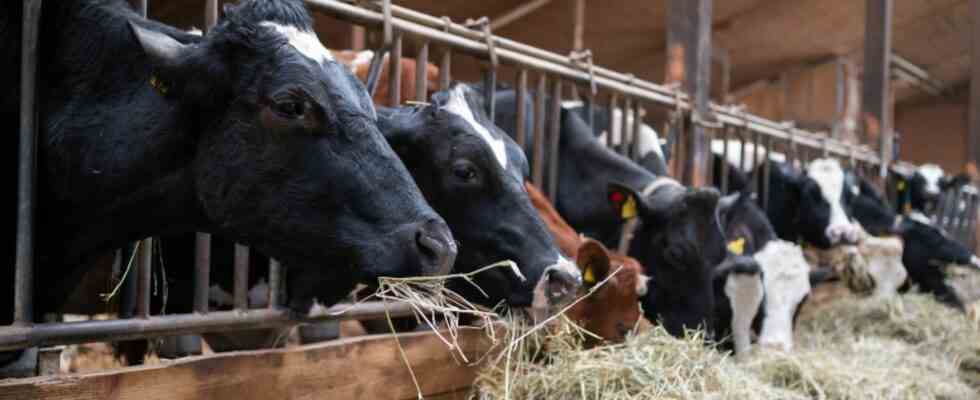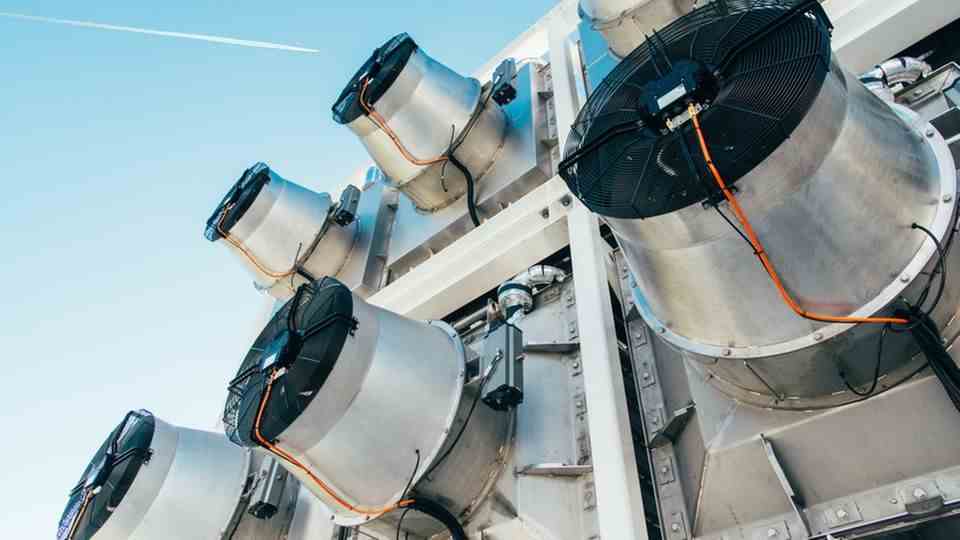greenhouse gas emissions
New Zealand wants to tax flatulences and belches from cows
New Zealand is the first country in the world to tax greenhouse gas emissions from livestock (symbol image)
© Philipp Schulze / DPA
New Zealand plans to tax greenhouse gas emissions from livestock from 2025. The main focus is on the climate-damaging methane gas that is produced during the digestive process of cows.
The New Zealand government wants to tax livestock flatulence and belches. From 2025, greenhouse gas emissions should be subject to a tax, this applies in particular to cows. Prime Minister Jacinda Ardern announced on Tuesday that all proceeds will go back to taxed farmers through research, funding for new technologies and tax incentives.
New Zealand: Government wants to tax greenhouse gas emissions from livestock
The government is urging New Zealand’s agricultural industry to be the first in the world to reduce its greenhouse gas emissions, giving it a competitive advantage in the increasingly climate-conscious market. “No other country in the world has yet developed a system for pricing and reducing agricultural emissions, so our farmers will benefit from being at the forefront,” said the Prime Minister. “Reducing emissions will help New Zealand farmers not only be the best in the world, but also the best for the world.”
What exactly the tax will look like and how high the levy will be is not yet clear. The project is based on plans by a previous government from 2003, which wanted to tax the methane gas emitted by livestock during digestion. The designs at the time failed and were ridiculed as a “fart tax”, a term which is misleading since cows emit a large part of the methane when they burp.
Agricultural industry criticizes the planned law
The agricultural industry sounded the alarm at the first attempt to introduce a methane tax for livestock. Same with the current plan. Farmers’ Union President Andrew Hoggard said farmers had spent two years negotiating with the government on how to cut emissions without impacting food production. Now the government is forcing farmers to sell their farms and replace them with trees. This is reported by the editorial network Germany.
According to the Beef + Lamb New Zealand association, which represents local sheep and cattle breeders, the plan does not take into account existing measures to combat greenhouse gases, as reported by “Tagesschau.de”. “New Zealand farmers have more than 1.4 million hectares of native forest on their land that absorbs carbon,” said Chairman Andrew Morrison. “It is only fair that any framework takes this into account appropriately from the outset.”
The agricultural sector is of the greatest relevance for New Zealand. It is one of the most important economic sectors in the country. Almost five million people are employed in agriculture, which includes around ten million cattle and 26 million sheep. Dairy products bring in the country’s highest export earnings.
Sources: tagesschau.de, Editorial network Germany


